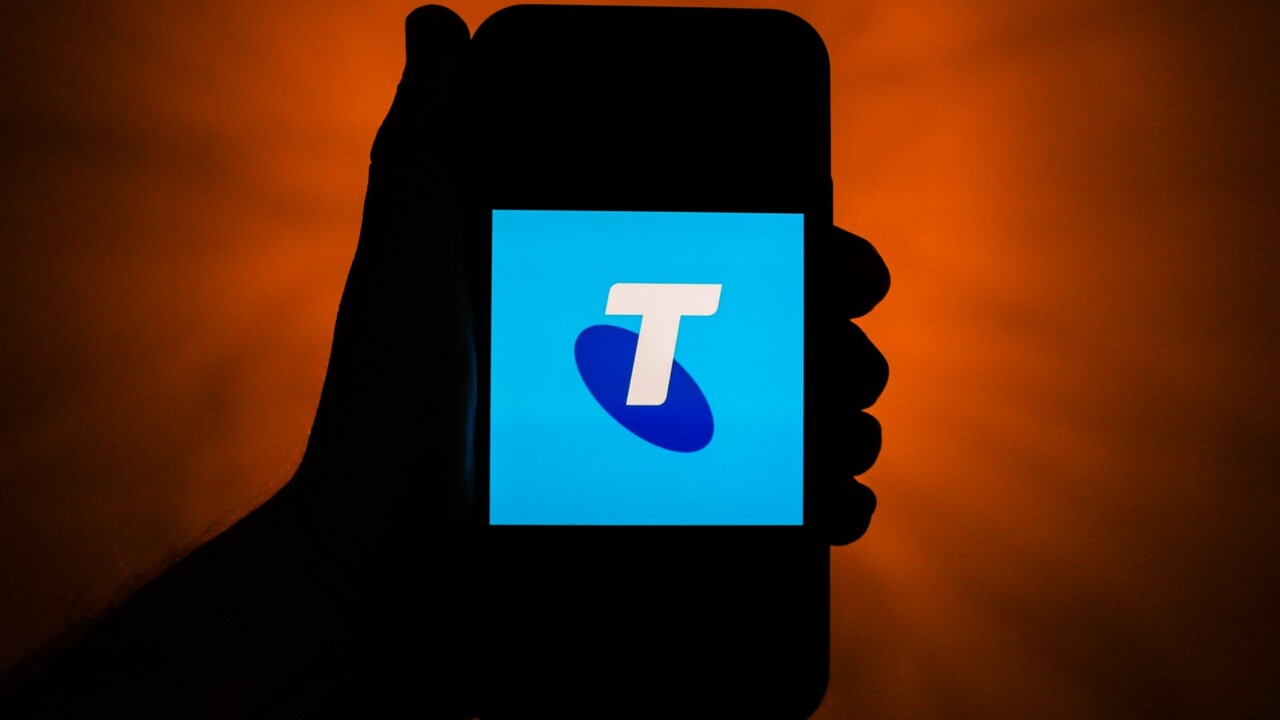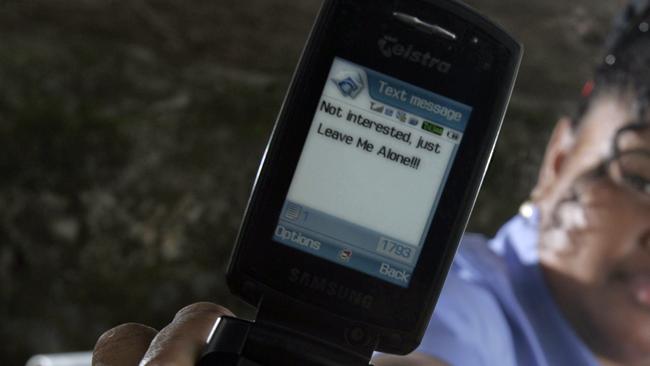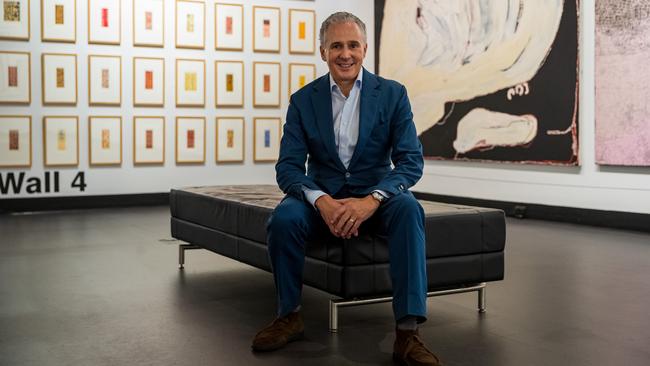Telstra chief: Indigenous reconciliation is a process, not an outcome and we have learned
When Telstra agreed to pay a $50m fine for rorting vulnerable Indigenous people, it was a dark hour for the telco but also an opportunity to change.

From darkness comes light, and so from Telstra’s “dark moment” when it agreed to pay a $50m fine for rorting vulnerable Indigenous people by mis-selling them expensive mobile phone contracts comes an opportunity to try to do better.
In 2021, Reconciliation Australia revoked the company’s Elevate Reconciliation Action Plan “in light of Telstra’s admission of unconscionable business practices in relation to 108 Aboriginal and Torres Strait Islander customers, by five outlets, and a proposed settlement with the Australian Competition and Consumer Commission”.
The experience was excoriating for Andrew Penn, an Indigenous art aficionado and attendee at things like Garma Festival, who prizes what he thought was the company’s exceptional record of Indigenous engagement.
“I felt incredibly disappointed and, you know, initially of course, you think, well, how can this be?” the Telsta boss says.
“We felt as if we were so well intended. In a way, that sort of blinds you to the fact that something could be occurring that’s not working.”
The outgoing chief executive, who announced retirement plans in March, has done much reflecting over the past two years. Launching the company’s new RAP in Darwin, he has a few lessons to share with others.
The overarching theme is that successful reconciliation is not so much about what you do but

how you do it. “Reconciliation is a process. It’s not an outcome,” he says.
“With corporates and even with myself in a way, we’re sort of wired to fix things. Some things just can’t be fixed. And actually, it’s not about that; it’s about building trust, building relationships and finding a better way to work more closely together in the future.”
Between January 2016 and August 2018, five Telstra-licensed stores in the Northern Territory, Western Australia and South Australia signed Indigenous customers to multiple postpaid mobile phone contracts.
Those affected were living on government benefits, did not speak English as a first language and neither understood nor could afford the deals. Telstra allowed some of their debts to be sold to third-party debt collectors.
Penn says one of the mistakes Telstra made was to confuse intent with action.
“There were some warning signs and some people raised some issues, and it’s not so much (that) we ignored them but it took us time to acknowledge and accept them because (we thought), ‘how could this be – we’ve done so many good things’,” he says.
Another lesson was not to confuse listening with hearing.

“One of the things I did in the early days of discovering this was to spend some time in the communities that had been impacted and with the customers that had been impacted,” Penn continues.
“We discovered that in many cases, First Nations communities and people weren’t necessarily using (our plans) in the way … we had assumed that they would be and how we had intended, and as a consequence that was leading to bad outcomes.”
Talking about stakeholders rather than talking to them was also a problem.
“What happens is all of that internal discussion is going on, and you sort of confuse that with actually engaging with your external stakeholders or your key stakeholders until you realise that nobody has actually spoken to them,” he says.
Penn also reiterates his point about not muddling fixing issues with reconciliation.
“We got rid of contracts in our plans. We got rid of excess data charges. We waived the debts of anybody who may possibly have taken on a plan without fully understanding it,” he says.
“But that’s not the same as reconciliation … reconciliation is actually about stopping and pausing to acknowledge and accept the harm that’s been caused, be genuinely sorry for that harm, demonstrate that remorse, and actually invest in building trust and rebuilding relationships, and that doesn’t come just from fixing practical things.”
The ACCC took legal action. Telstra agreed to pay a $50m fine.
In an apology issued at the time, Mr Penn said: “Frankly, I don’t blame them (Reconciliation Australia) … we should have been more attuned; we should have listened harder to what was happening because we could’ve picked this up earlier.”
Telstra’s new Reconciliation Action Plan, launched this week, is a “vision for … an inclusive Australia where ATSI peoples are connected and empowered to thrive”.
“Our vision for reconciliation will be achieved by embedding reconciliation outcomes and system changes into our organisation,” the document says.
Penn declines to reveal his next moves but speaks passionately about engaging and supporting First Nations peoples. “I think this experience has given me a much deeper appreciation of what that means,” he says.
“I look forward to the future of being able to make a contribution, perhaps at a more profound and deeper level.”







To join the conversation, please log in. Don't have an account? Register
Join the conversation, you are commenting as Logout